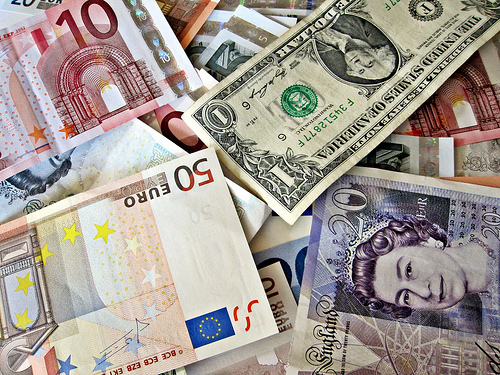
Whenever American and European politicians and members of their business communities talk about their plans for a Transatlantic Trade and Investment Agreement (TTIP), they wax lyrical about an economic zone consisting of Western democracies. The message to their citizens sounds compelling: “We share the same values, and we will now set standards for the rest of the world.”
Not so fast. The actual negotiations – scheduled to start as early as this month – will quickly show how similar – or different – those values really are.
The US and the EU may agree on transparency rules for state-owned companies and standards for IPR protection – hoping to create a model for their less democratic competitors like China.
Yet transatlantic civility usually ends when it comes to American efforts to open the EU market for hormone-treated beef, to EU standards on carbon emissions for airlines or to European concerns about a perceived lack of data protection in the US.
As for the latter, the recent revelation about the National Security Agency’s secret Internet surveillance program is raising all the red flags in European capitals. One thing is clear: Data privacy will play a prominent role in the talks, and it will be controversial.
Even among Western democracies, the distinction between values and interests is not always clear. When they look to China, Western governments have more in mind than the lofty goal to promote the values of a Western market economy and the rule of law. They are just as keen on protecting their own national or business interests.
The same factors are at play in Transatlantic talks – whether the US hesitates to open its air and maritime transport sectors or its public procurement market for defense or whether France wants to protect its film and media industry from foreign competition. The French insistence on this point almost prevented the EU from agreeing on a mandate last Friday.
The game gets even more complicated, when one side’s business interests threaten to undermine the other side’s values. And this is the case for hot-button issues like public health, data privacy and environmental regulations.
No matter if this threat is real or perceived – negotiators on both sides would be smart to take the public perception into account, if they don’t want to land where many previous efforts to harmonize regulations on both sides of the Atlantic ended: in a cul-de-sac.
European politicians learned this the hard way. Last year, following a public campaign to protect the free flow of information on the Internet, the European parliament voted down the international ACTA legislation designed to protect intellectual property rights online.
In Washington, the power of (European) public opinion on these issues is often overlooked. Many senior government officials and commentators have come to the conclusion that the EU’s current crisis and the need to generate growth will make Europeans more eager than ever before to compromise and sign a deal.
The zeal with which TTIP’s European proponents from the UK, Ireland, Germany and the Netherlands, praise the project on every possible occasion, seems to prove that point. But the attentive observer will have noticed that France, the country where the debate over the US practice to sanitize chicken meat in chlorinated water once escalated into street protests, is lukewarm at best. Meanwhile Eastern Europeans complain about not even being invited to the table.
American officials tend to dismiss European concerns about “chlorinated chickens” as pure hypocrisy and a blatant trade barrier. After all, it is not proven that the method is harmful to the consumer, and ready-to-eat salad is sanitized with chlorinated water in the EU as well. So goes the rational, interest-based argument.
In their defense, EU representatives use an ethical argument: If chemicals are not an option to clean meat of bacteria, everyone in the production chain, all the way down to the chicken farmer, is forced to apply higher hygienic standards and to treat animals humanely.
During his recent visit to Washington, Germany’s economics minister Phillip Rösler, a member of the pro-trade Liberal Democratic Party, stated that he would feel at ease eating chicken on both sides of the Atlantic. But he also warned: “Peoples’ concerns are not based on protectionism. They are real concerns, and they can lead to the failure of such agreements.”
America’s chickens may indeed be a sideshow that has been blown out of proportion. And there are reasons to question the scientific basis for some EU risk assessments. However, it would be dangerous to dismiss widespread public discomfort over treating cows with growth hormones, selling genetically modified plants or giving corporations (and now the US governments) access to personal data.
The values question gets even murkier as the public debate in the US changes as well. A growing number of Americans are demanding hormone-free beef, and the organic food chain Whole Foods announced that it would start to label GMO food. Monsanto’s GMO wheat that recently spread to fields in Oregon is raising further questions among consumers. And the NSA scandal does not only worry Europeans – it is triggering the most intensive debate over the right balance between privacy and national security since 9/11.
So perhaps the TTIP is an opportunity to find out whose values we are really talking about when we talk about common transatlantic values. This is only possible if parliamentarians and the general public are informed, and if civil rights groups, not just industry representatives, are included from the get-go.
Traditionally, trade negotiations are held behind closed doors. Maybe this is where the US and the EU could set a new standard – by holding up one value that Western democracies have always taken special pride in: transparency.
Sabine Muscat is a German journalist based in Washington, DC. She writes about transatlantic issues for German and English language publications.
Photo credit: Images Money
Image: 5856660723_ef2b89a8e6.jpg
